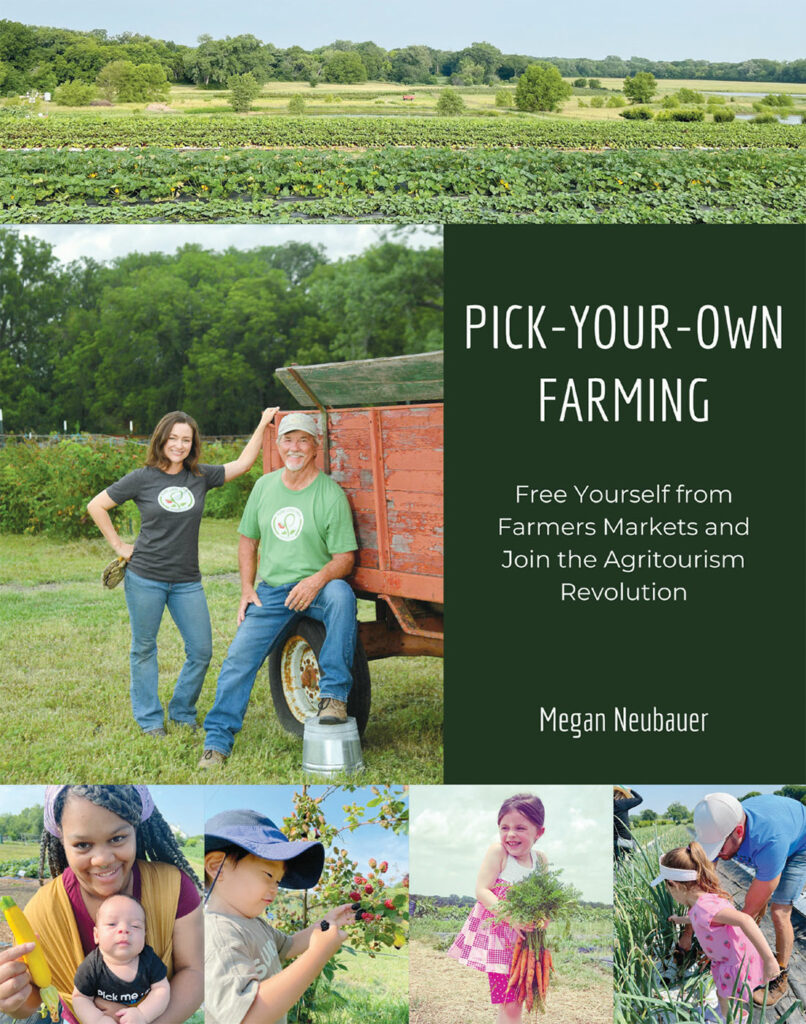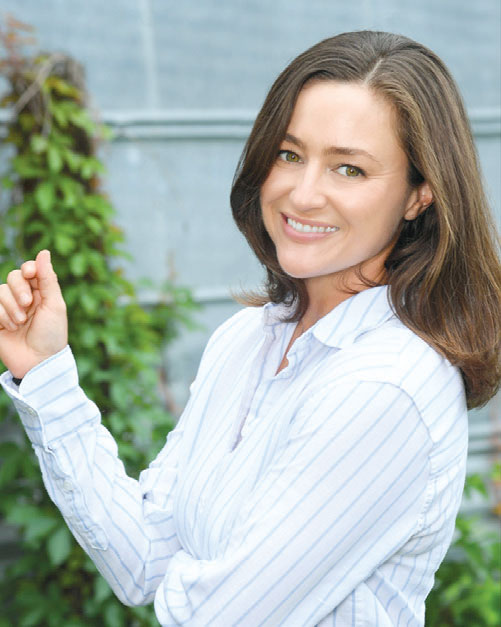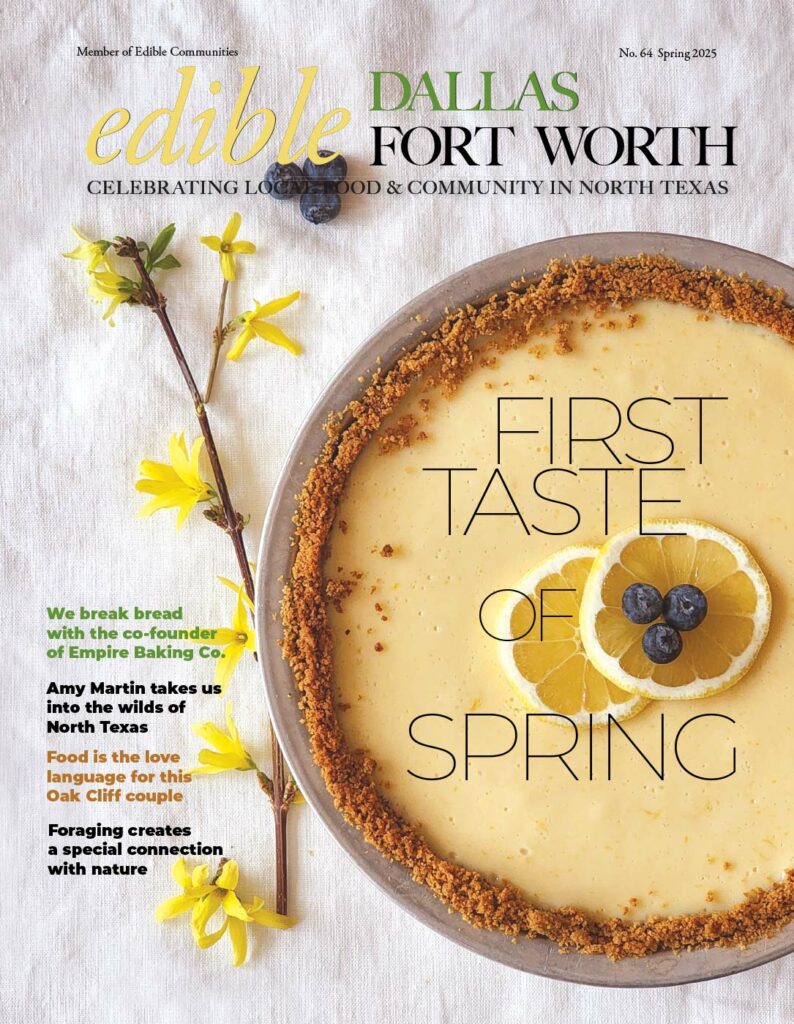Pure Land Farm’s Megan Neubauer Publishes a Pick-Your-Own Farming Model Book


It all started with the berries. —Megan Neubauer
At Pure Land Farm, you can don sunscreen and a hat and then pick inky, plump blackberries from their thornless canes planted in regeneratively nurtured soil. When Megan Neubauer founded the McKinney farm with her father in 2012, she couldn’t know that just over a decade later, she would be celebrating the release of a book and dedicating it “to the 25,000 pickers we’ve hosted over the last six years,” adding to that huge crowd “thank you for choosing to spend a day in the dirt with us.” But what she did was write the book she wished she could have read—but that didn’t exist.
The book, published by Acres U.S.A. Publishing, started as an inside joke. Whenever she and her father had a revelation, they’d say, “Put it in the book! It’s goin’ in the book. I stopped and said, why not a book?” The lively hand-drawn illustrations are by a local Prosper ISD art teacher. “I wanted it to have an illustrative style. Not a dry farming book with Excel spreadsheets,” Neubauer says.
Part manifesto and part DIY/how-to primer/ practical compendium, the tome, Pick-Your-Own Farming: Free Yourself om Farmers Markets and Join the Agritourism Revolution, begins with an introduction to the father-daughter-duo—he a former petroleum engineer, she a former pediatric oncologist. On their picturesque 28 acres sloping to Honey Creek, they practice organic, low-waste, regenerative farming. But Neubauer describes their difficulty, initially, in turning a pro t using the local farmers market model. Inspired by the writing of Dr. Booker T. Whatley, she had an epiphany: by changing to a pick-your-own model, Pure Land might become more pro table.
“It all started with the berries,” Neubauer writes. When she piloted a small pick-your-own blackberry plot in 2015, she saw that visitors plucking them looked around and wanted to know if they could unearth, for example, the onions, too, which were at the time still going to market. In 2018, Neubauer and her father took the leap of faith and shifted their entire business model to a diversified, pick-your-own, agritourism methodology: two acres of blackberries, two acres of other fruits and vegetables.
Here, she makes a robust contribution to the literature on farming. In lucidly sequenced chapters, from “ The Advantages of Agritourism” to “Marketing and Finding Your People” to “Go Forth,” she offers concrete, current, immeasurably practical, inspiring advice based on years of experience—from marketing to bookkeeping to properly diversifying crops. “ The operational parts just fell out of my brain,” she says. After seven growing seasons, she had it down pat.
Come August, she’ll begin work on a book of profiles of agritourism farmers, a companion tome.
The hope is that by using the model, small farmers can actually thrive without succumbing to the specter and prevalent rhetoric of a “get big or get out” agricultural landscape. at they can provide themselves year-round, full-time employment—something that cannot be taken for granted. is, in turn, makes for a bustling small-farm community for consumers—who, Neubauer hopes, might join the ranks of those who farm, knowing that with hard work and savvy, it can be lucrative.
“I really believe there could be 10 farms like ours in DFW. And think about the impact! How much that has the potential to change the tide. It’s a dream.”
Pick-Your-Own Farming, Acres U.S.A.,
Dec. 2023 ($30)
Visit Pure Land Farm at purelandorganic.com
FB & IG @purelandfarm
EVE HILL-AGNUS teaches English and journalism and is a freelance writer based in Dallas. She earned degrees in English and Education from Stanford University. Her work has appeared in the Dallas Morning News, D Magazine, and the journal Food, Culture & Society. She remains a contributing Food & Wine columnist for the Los Altos Town Crier, the Bay-Area newspaper where she stumbled into journalism by writing food articles during grad school. Her French-American background and childhood spent in France fuel her enduring love for French food and its history. She is also obsessed with goats and cheese.
- Eve Hill-Agnushttps://www.edibledfw.com/author/ehillagnus/
- Eve Hill-Agnushttps://www.edibledfw.com/author/ehillagnus/
- Eve Hill-Agnushttps://www.edibledfw.com/author/ehillagnus/
- Eve Hill-Agnushttps://www.edibledfw.com/author/ehillagnus/









